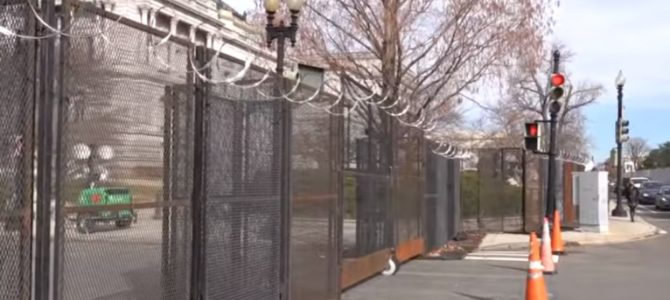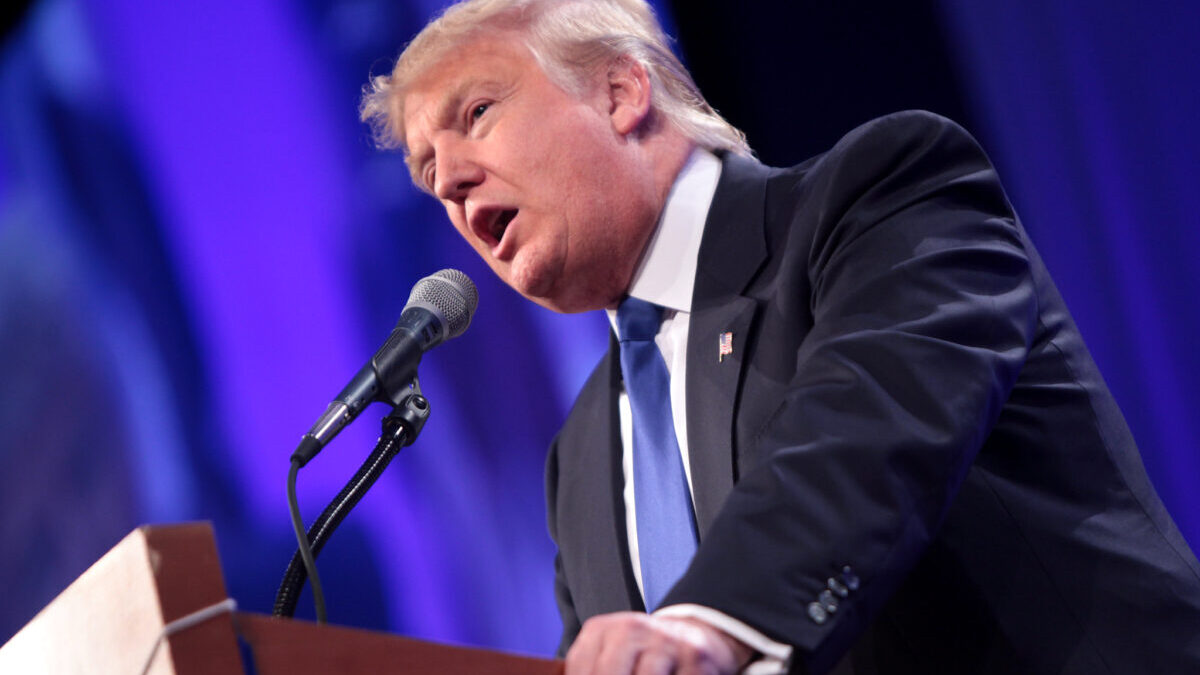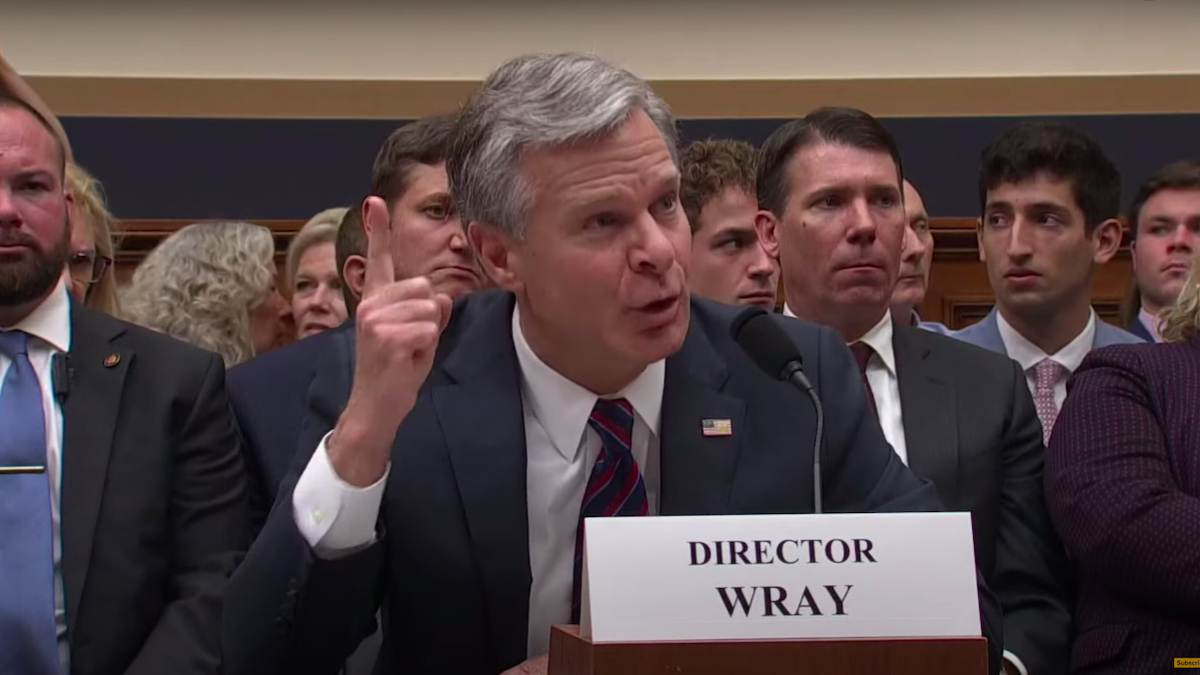
In the nation’s capital, people walking through Capitol Hill on a warm pre-spring day Wednesday could find multiple signs like this:

The signs show sentiment among Washingtonians against the creeping police state that sprung up in the wake of the January 6 riot at the Capitol—a police state that security authorities want to make permanent.
Thankfully, Congress has just such an opportunity to weigh in on the matter this week. The “vote-a-rama” process on Congress’ latest $1.9 trillion “stimulus” bill will allow senators to offer amendments on any issue, including taking aim at the taxpayer spending on razor wire around the Capitol. If Democratic lawmakers support defunding the police, perhaps they can start by defunding the police state established around the People’s House.
March 4 Threat?
To some, the timing of this proposal may seem inappropriate. On Wednesday, the House of Representatives changed their schedule, completing its work for the week early so the House would not be in session Thursday. The move came after alleged threats to the Capitol on March 4—the presidential inauguration date prior to the passage of the 20th Amendment—by militia groups and others associated with the QAnon conspiracy theory.
The precise nature of this latest threat remains murky. Rep. Michael McCaul, R-Texas, the ranking member on the House Foreign Affairs Committee, called it “credible” in a television appearance Wednesday. On the other hand, while taking the general threat “seriously,” law enforcement sources have dismissed as implausible the allegation in a late February FBI bulletin that 50,000 individuals from militia groups will descend on Washington to attack the Capitol this week.
Constantly Extending Restrictions
While it makes perfect sense to enhance security in response to a discrete, credible threat, the Capitol fortifications look increasingly permanent. Many Capitol Hill residents—including this one—didn’t like the massive fences put in place prior to the inauguration, but most tolerated them, given the horrific rioting.
But what became a two-week inconvenience to secure an orderly transfer of power has taken on a distinct sense of “mission creep.” After the inauguration, security officials then claimed they needed to keep the Capitol complex secure for President Trump’s second impeachment trial. Shortly after that trial concluded, the same officials started talking about the need for continued restrictions through September.
Last week, Acting Capitol Police Chief Yogananda Pittman claimed the fencing needs to remain because militia groups have threatened to attack the Capitol during the State of the Union address. Never mind that Congress has not set a date for President Biden to give such an address (technically not a State of the Union message during his first year in office). Never mind too that trying to host such a joint session of Congress in the middle of a pandemic doesn’t exactly jibe with Biden’s COVID messaging.
It appears the Capitol Police have gone from under-policing riots to over-policing, searching for every and any reason to keep the Capitol on permanent lockdown. But for members of Congress and their staff, to say nothing of residents of the Washington area, the perpetually extended restrictions have long since started to grate.
Vote-A-Rama Amendment
The Democrat “stimulus” bill, being considered under budget reconciliation rules in the Senate, provides a potential legislative solution. At the end of debate on a budget reconciliation bill, the Senate proceeds to a “vote-a-rama,” in which senators can offer, and demand votes on, amendments on any number of issues and priorities.
During this process, senators could request a vote on an amendment defunding the fencing and razor wire around the Capitol. Because such an amendment has a greater effect on policy than on government spending, it would likely need 60 votes to pass, consistent with the Senate’s “Byrd rule” for budget reconciliation bills.
Regardless of whether or not such an amendment succeeds—if subject to a 60-vote threshold, it would require at least 10 senators to cross party lines to do so—it would serve a critically important role in clarifying the debate. Pittman and the relevant security authorities that built the fence, and now want to keep it, may think they run Congress. They don’t—the American people, acting through their duly elected members of Congress, do.
It’s long past time for members of Congress to weigh in formally on the Capitol fencing. And if some of them want to support a permanent police state on Capitol Hill—keeping a wall between them and their constituents—the American people will get to express their views on that matter next November.









